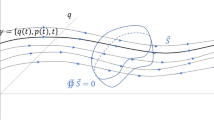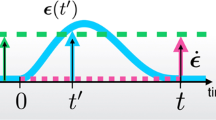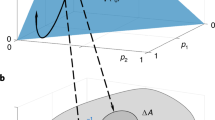Abstract
THE utterances of many men of science as to the doctrine of the conservation of energy betray a tendency to exaggerate the importance of the position of this principle in the general scheme of physical science. It appears sometimes to be forgotten that the principle of energy, if applied to even the simplest dynamical system which is possessed of more than one degree of freedom, is, taken by itself, wholly insufficient for the determination of the motion of such system. Although the principle has been of inestimable value as regulative of the relations between the different forms of molar, molecular, and corpuscular energy which the state of our knowledge compels us to distinguish, it is nevertheless true that in an ultimate, dynamical formulation of physical phenomena, the principle of energy descends to the rank of being one integral only of the dynamical equations of a system, a knowledge of the other integrals being indispensable for the complete determination of the motions of the system.
This is a preview of subscription content, access via your institution
Access options
Subscribe to this journal
Receive 51 print issues and online access
$199.00 per year
only $3.90 per issue
Buy this article
- Purchase on Springer Link
- Instant access to full article PDF
Prices may be subject to local taxes which are calculated during checkout
Similar content being viewed by others
Author information
Authors and Affiliations
Rights and permissions
About this article
Cite this article
HOBSON, E. Sir O Lodge and the Conservation of Energy. Nature 67, 611–612 (1903). https://doi.org/10.1038/067611a0
Issue Date:
DOI: https://doi.org/10.1038/067611a0
Comments
By submitting a comment you agree to abide by our Terms and Community Guidelines. If you find something abusive or that does not comply with our terms or guidelines please flag it as inappropriate.



